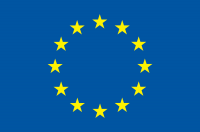

Historic buildings are the trademark of numerous European cities, towns and villages: historic quarters give uniqueness to our cities, they are a living symbol of Europe’s rich cultural heritage and reflect society’s identity. Yet, this is also an area where the high level of energy inefficiency is contributing to a huge percentage of greenhouse gas emissions. With climate change posing a real and urgent threat to humanity and its surroundings, also to historic buildings, it is necessary to guide an improved approach to all refurbishment actions in historic buildings. The project 3ENCULT bridges the gap between conservation of historic buildings and climate protection, which is not an antagonism at all: historic buildings will only survive if maintained as living space. Energy efficient retrofit is useful for structural protection as well as for comfort reasons - comfort for users and “comfort” for heritage collections. 3ENCULT will demonstrate the feasibility of “Factor 4” to “Factor 10” reduction in energy demand, depending on the case and the heritage value.
Starting in work package 2 with an analysis of the challenge to be approached and the needs for comprehensive diagnosis, work package 3 and work package 4 investigates technical solutions for the energy enhancement as well as smart monitoring and control. Work package 5 allows the demonstration of the developed solutions while work package 6 gives stimulus for the solution development and successively feedback. Work package 7 gathers the development of design tools, quality assurance within and after the project as well as contributions to standards and knowledge transfer. Work package 8 focused on the dissemination of results to a wide range of stakeholders. 3ENCULT demonstrate that it is feasible to reduce energy demand by between 75% and 90%.
The joint task of conservation and energy efficient retrofit is highly interdisciplinary. The 3ENCULT consortium consists of scientists and stakeholders, especially on the level of SMEs, from the fields of diagnostics, conservation, building physics, sustainability, architecture and lighting up to cybernetics, thus guaranteeing both, the development of sustainable solutions and the impact on European economy. Eight case studies demonstrate and verify solutions that are applicable to the majority of European built heritage in urban areas. Building owners and local historic preservation agencies are integrated in local case study teams. 3ENCULT demonstrates the feasibility of “Factor 4” to “Factor 10” reduction in energy demand, depending on the case and the heritage value. The main objectives are the development of passive and active solutions for conservation and energy efficient retrofit including available products as well as new developments by involved SMEs, the definition of diagnosis and monitoring instruments, the long term monitoring (also for IEQ controlling) and the planning and evaluation tools and concepts supporting the implementation, the quality assurance and control of success of the energy retrofit measures. Guidelines and position papers suggest possible integrations and/or implementations of the present regulation framework for improving energy efficiency of historic buildings in urban areas and in particular EPBD and Environmental Impact Assessment as well as Aalborg Commitments and Leipzig Charter.